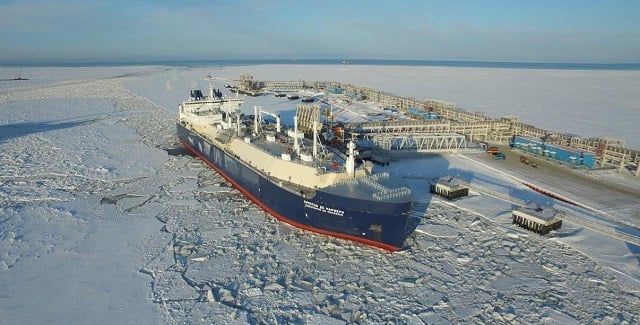
The European Union (EU) is pushing ahead with plans to increase pressure on the Russian economy, pledging to continue cutting gas imports and to implement a full ban by 2028. Following Russia’s invasion of Ukraine, the bloc now recognises that cutting off gas imports is critical to denying Moscow the resources it needs to support its aggression.
European Union energy ministers, meeting at the European Council on 20 October, approved a plan to gradually reduce imports of both pipeline gas and liquefied natural gas (LNG) from Russia, with a full ban expected to come into effect on 1 January 2028. The European Council’s proposal is in line with the REPowerEU plan, which was adopted in 2022 and sets out the bloc’s roadmap for ending Europe’s dependence on Russian energy.
The President of the Council announces that negotiations with the European Parliament will start. The aim is to agree on the final text of the regulation once Parliament has adopted its position. This comes against the backdrop of efforts to finalise the wider 19th package of sanctions against Russia, which will include a ban on oil and gas supplies and the listing of additional tankers.
In the approved plan, EU countries agree to stop importing Russian gas in January next year, with a two-year transition period for existing contracts. Some time has been given for short-term contracts, which will run until June next year, while long-term contracts expire in 2028.
“An energy-independent Europe is a stronger and more secure Europe. Although we have worked hard and pushed for the removal of Russian gas and oil from Europe in recent years, we have not yet achieved this. "It is therefore crucial that the Danish presidency secures overwhelming support from European energy ministers for legislation that would permanently ban Russian gas from entering the EU," said Lars Aagard, Denmark's Minister for Climate, Energy and Utilities.
With no end in sight to the Russia-Ukraine war, the EU hopes that halting imports will further undermine Russia's economy and deprive the Kremlin of resources to support the war. Despite efforts to reduce its dependence on Russia for energy needs, the bloc remains a major importer of Moscow's gas, accounting for around 13 percent of imports worth more than 15 billion euros ($17.4 billion) annually in 2025.
EU data shows that the bloc imported 52 billion cubic meters (bcm) of Russian gas in 2024, about 19 percent of the EU's total gas imports. It also imported 3 million tonnes of crude oil and more than 2,800 tonnes of uranium in enriched or fuel form. At least 10 member states imported Russian gas in 2024, three of which imported oil and seven imported enriched uranium or uranium-related services.
The EU has imposed a series of sanctions against the Kremlin as part of efforts to reduce imports. Some of the sanctions have banned imports of Russian coal and oil into the EU, and have also banned the transhipment of cargoes carrying LNG from Russia at the bloc’s ports. Particular attention is now focused on the issue of circumvention of EU oil sanctions through the use of shadow fleets. In this regard, the bloc is working on a new plan to further strengthen inspections of the shadow tanker fleet that supports the Russian energy industry.
Thanks to these efforts, gas imports from Russia to the EU have decreased from 45 percent in 2021 to 19 percent in 2024 and 13 percent this year. The share of Russian oil imports has also decreased from 27 percent in early 2022 to three percent now. Notably, about two-thirds of Russian gas imports are supplied on a long-term basis, while about a third are supplied on a spot (short-term) basis.
The proposed regulation would require countries to submit national diversification plans, outlining measures and potential difficulties for diversifying gas supplies. The bloc has also introduced additional monitoring and reporting mechanisms to prevent Russian gas from entering the EU through transit procedures.




